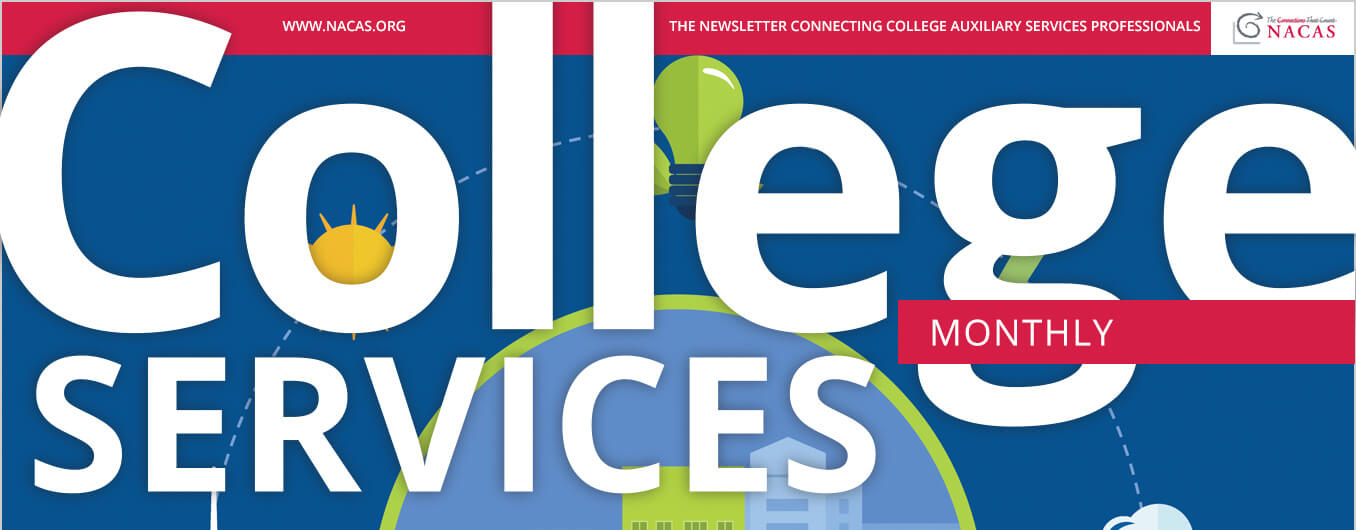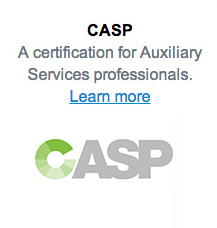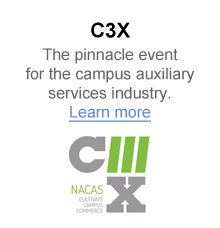
Campus tech store: Year one review.
![]() Print this Article | Send to Colleague
Print this Article | Send to Colleague
In October 2014, Georgia College opened the doors to Innovation Station, a campus technology store. The retail location represented a brave new venture for auxiliary services and the Department of Information Technology at Georgia College.
The 2,415-square-foot store sells PC and Mac computers, tablets, gaming devices, and assorted tech accessories such as cables, headphones, and even drone cameras. In addition to the technology sales, Innovation Station hosts a high-tech demonstration room and houses Serve, the schoolís IT support office for students, faculty, and staff.
Innovation Station brings a long-held dream into reality for multiple parties at Georgia College. Previous technology store efforts had been made individually by auxiliary services and the Department of Information Technology, but the retail demand of the campus didnít sufficiently support the store. By developing a partnership between IT and auxiliary services, Georgia College was able to develop a solid business plan for the venture. A key point of this business plan is funneling institutional sales through Innovation Station; allowing the store to meet sales quotas and keep the store profitable.
Key stakeholders including the president, provost, CIO, and assistant vice president for auxiliary services and SGA president started the research process by visiting the headquarters of Dell in Round Rock, Texas, and Apple in Curpertino, California. Both Dell and Apple partners were able to collaborate with university representatives to design the framework for a successful retail location.
Store manager Charles Cruey was charged with the task of opening the store and operating the venue from day one. Cruey sat for a Q&A session to share the challenges and successes of this process.
How would you define the mission of Innovation Station?
Our goal is to dovetail with the mission of auxiliary services: to be a self-supporting, integral part of the learning environment that enhances the quality of campus life.
In addition, we strive to provide a "safe" place where customers can get their technology questions answered. Innovation Station hosts an area for customers to see and interact with the newest technologies and offerings. After the sale, we provide technology training and support.
What were the most challenging parts of opening this store from scratch? Which of these challenges were unexpected?
The most challenging aspect of opening the store was establishing the base of operating processes and procedures. The concept was developed, but locating the proper tools to perform the job and then creating the correct procedures and policies did take a lot of effort. Once the decision about which POS (Point of Sales) system we were going to use was finalized, everything grew from there. The POS integrated all the ordering and financial tracking information we would need. Our POS also offers the ability to integrate with an e-commerce module when we are ready to implement that aspect.
The unexpected challenge was sourcing merchandise that could be competitively priced. Having Apple as a partner was, and still is, a crucial relationship that will help our store become successful.
Has the store met expectations (sales numbers, items that sell, traffic counts, etc.)?
We knew going into this venture that it would take some time for the store to become profitable. Customer counts are great with added traffic from ITís Serve Help Desk being located in the store. Computer sales are healthy with inquires from parents and staff growing each week. Third-party accessory sales are growing and tend to go in spurts.
How do you determine which products to carry?
I speak with several different college tech stores to see what they are offering. As part of an auxiliary services customer satisfaction survey, we gained student feedback regarding the products they wish to have available. I also talk with our sales representatives and attend tradeshows to research what new items are popular sellers.
What kind of staffing challenges have you had?
Working with students, while rewarding, can be challenging when it comes to scheduling and focus. Studentsí primary focus is their coursework. We are looking for another full-time staff member that will help with longer-term objectives and continuity.
Innovation Station has been promoted as a place to learn about the latest tech products and trends. How do you and the staff keep up-to-date with the tech trends and innovations?
I personally do a lot of reading and research. Every time I have to do a quote for someone, I am learning the nuances and requirements of each new product. I am working to develop "champions" for each category in the store. For example, I just hired a student who does a lot with GoPro, and he is going to train all the other staff and help with customers. We are going to have demonstrations in our demo room to showcase his videos and how he achieved the shots. I plan to expand this with iPad courses and to market to parents that we will have MacBook training courses throughout the semester.
We also get input and information from our vendors. They do webinars with us to answer questions and to give pointers about their products.
Has the demo room been successful? Where would you like to see the future of the demo room go?
The demo room has been quite the success. Everyone that has been able to use the room has been thoroughly impressed. The goal is to have ongoing courses that instruct on utilizing the technology people already have or are interested in getting. I am also working to have demonstrations hosted by vendors so students or even departments can get all their questions answered.
I am currently developing a plan to host gaming tournaments in the room too, to drive additional foot traffic to the store.
What role has Serveís location played in the storeís success? Has it offered unique challenges?
The fact that students, faculty, and staff now come into the store to visit Serve (our universityís IT Help Desk) has been a great advantage for us. We see as many as 100 people walking through on the busy days and at least five to 10 people walking through on the slow days. Everyone comments on the store, and they browse while they wait their turn at the help desk.
One of the challenges is that lines do sometimes form, especially during peak periods, such as the week or so before finals.
Whatís next for the Innovation Station?
Over the summer, we focus on communicating with incoming freshmen. Itís our hope that parents and family who want to purchase a computer or other technology as a high school graduation gift will make that purchase at Innovation Station. We will have a significant role in orientation and use direct mail to promote sales.
ABOUT GEORGIA COLLEGE: Georgia College, the state's designated public liberal arts university, combines the educational experience expected at esteemed private liberal arts colleges with the affordability of public higher education. Its four colleges Ė arts and sciences, business, education and health sciences Ė provide 6,600 undergraduate and graduate students with an exceptional learning environment that extends beyond the classroom, with hands-on involvement with faculty research, community service, residential learning communities, study abroad and myriad internships.

For more information visit: www.nacas.org


